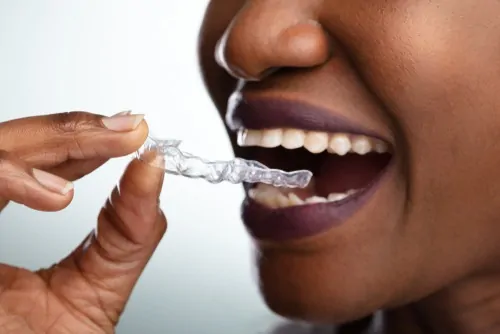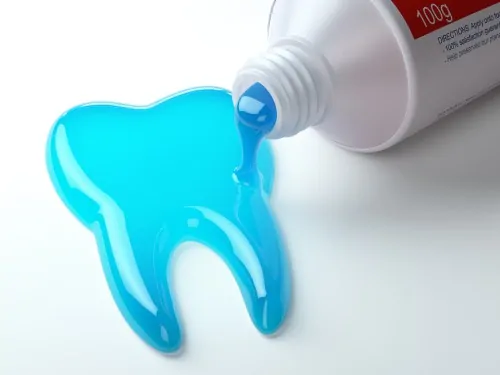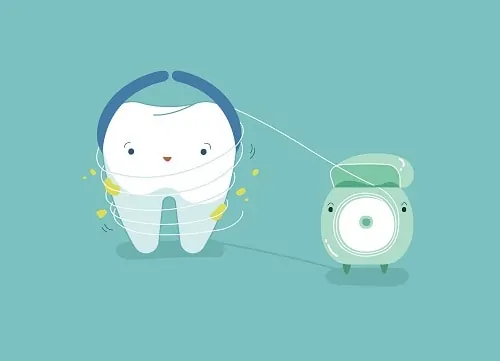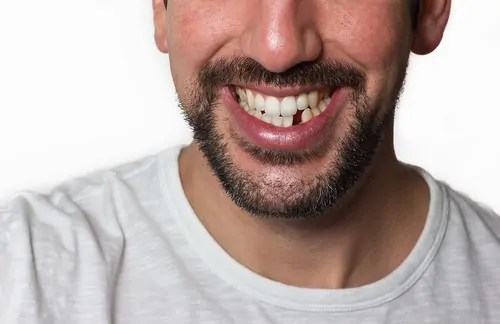Blog
17
Sep
Think You Can Straighten Your Smile Through the Mail? Think Again!

Every time you turn on the TV these days or read something online, there seems to be an ad for do-it-yourself or DIY teeth aligners. They promise a straighter smile without a trip to see a trained professional. Your dentist in Douglasville will tell you to be cautious about mail-order aligners for a few reasons. After all, this is your smile we’re talking about. If it doesn’t work correctly, you run the risk of a bad bite, poor alignment, and adverse effects on your overall health.
The Biggest Risks to Your Bite
No matter what kind of treatment or procedure you want for your smile, it’s always best to work with a professional. Other than keeping up with your at-home brushing and flossing like a champ, there’s not too much else you should be doing to your smile yourself. These mail-order, or direct-to-consumer orthodontic options are often not monitored by a dental health professional. So, who’s there to check in on your progress?
The American Association of Orthodontists suggests that every type of straightening treatment plan be monitored by a dental health professional like your Douglasville dentist. This regular interaction allows you to communicate any concerns you may have. It also gives the doctor an idea of how well your treatment is progressing. Orthodontic treatment without supervision could lead to issues that are painful and irreversible down the road.
Avoiding Temptations is Hard
When the commercial comes across the screen featuring beautiful people and their straight smiles, it’s easy to be sucked in. Couple that with clever marketing and the guarantee of a straighter smile and it becomes even harder to ignore. What it comes down to is cost.
When you’re promised a straighter smile at half the price, you’re instantly attracted and may be ready to buy. But how do you know what you’re getting? Normally with the DIY products, you make an at-home dental impression… and you had better cross your fingers that everything was done right. Then a series of clear aligners are created and mailed to you. You wear them without ever seeing a doctor to make sure you’re not damaging your bite or smile.
Know What’s Right
What the ads don’t tell you is that not everyone or every smile is fit for clear aligner orthodontic treatment. Sometimes these aligners aren’t enough to get your teeth to move into a more desirable, healthy position. Chances are, to get the results you want, you’re going to need some serious tooth movement. If your case is complicated, wasting your money on mail-order, DIY aligners will NOT give you the straight, confident smile you desire.
The moral of the story? Be careful about choosing convenience over expertise.
Are you or someone in your family ready for a straighter, healthier smile? Then forget about the TV ads and call our Douglasville dental office today for a consultation. We have the cutting-edge technology to be able to assess your smile and your bite to find out what orthodontic treatment is right for you. Better yet, if we find something that’s going to work for you, we’ll be there with you every step of the way. We can answer questions, make sure your treatment is progressing normally, and help you with aftercare needs, like a custom retainer.
Fluoride For a Healthy Smile

When it comes to the oral health of you and your family, you may have heard about the importance of fluoride. You may have also heard a few arguments against it. At our dental office in Douglasville, we want to take the opportunity to talk a little bit about fluoride, what it is, why it’s crucial for our smiles, and yes, even discuss a few risks.
What Is Fluoride?
Fluoride is a mineral that’s found in nature, specifically in soil, water, plants, and the air we breathe. In the world of dentistry, fluoride is used to help strengthen tooth enamel and protect teeth against decay and cavities. It can also help repair early decay caused by demineralization.
Demineralization occurs when acids from bacteria and foods linger around and begin to eat away at the protective layer of enamel. But enamel isn’t the only thing affected during demineralization. Our teeth can also lose minerals such as calcium, phosphate, and fluoride. These minerals are essential to keeping our teeth tough and strong to fight off decay… so it’s important to replace them either through the foods we eat or from fluoride treatments from your Douglasville dentist.
Who Should Get Fluoride?
When you think of fluoride, you may assume that it’s only important for kids. But nearly everyone’s smile can benefit from fluoride. Your dentist in Douglasville will most likely recommend that both you and your children receive a fluoride treatment at every dental appointment to help build strong teeth and protect against cavities. These treatments are typically either a varnish, foam, or gel that are applied in the dental office.
Where to Get Fluoride?
Besides having your dental team apply a fluoride treatment, there are other ways you can help your teeth get enough fluoride. Most public water supplies have added fluoride, and it can be found in some foods you eat. There’s also fluoride in many kinds of toothpaste and mouthwash. Fluoride supplements are also available and may be recommended if you don’t have fluoridated water or if you need an extra boost of fluoride.
Is Fluoride Safe?
Fluoride is safe for children and adults in recommended amounts, which will vary based on things such as risk, need, and age. However, fluoride can be hazardous if it’s used too much. This risk is extremely low as it’s extremely difficult to expose yourself to dangerous levels of fluoride through fluoridated water, toothpaste, and fluoride treatments from your dentist. A good rule of thumb is to remember to always follow your dentist’s recommendations, don’t swallow toothpaste or mouthwash, and monitor children’s brushing habits at home.
If you’re unsure if fluoride is right for you or your family, or if you have questions about fluoride, we welcome you to call our Douglasville dental office and schedule a visit. We’re here to help!
How to Pick the Best Dental Floss

When you walk down the oral health care aisle at your local supermarket, it can quickly become overwhelming. There are just so many different types of toothbrushes, tubes of toothpaste, bottles of mouthwashes, and packets of floss to pick from. How in the world are you supposed to pick the best products for you? Don’t worry, today the team at our Douglasville dental office is here to help narrow your options for one of the most important tools in your oral hygiene toolbox — floss.
Flossing can sometimes be overlooked as a crucial part of your oral health, but the truth is, flossing every day is incredibly effective at lowering your risk for cavities and gum disease. This means that you need to choose a type of floss that you will use regularly and properly. Let’s take a closer look at the three most common types of floss recommended by your dentist in Douglasville.
Traditional Floss
The most common type of floss is the traditional string floss found in those little, compact containers. This time-tested original can work really well for many people as it’s what they first learned to floss with, so it’s comfortable to use. However, those who may have trouble using their hands or fingers may not be able to reach around each tooth or back into the molars. This is when an alternative option should be considered.
Floss Picks
Floss picks are those little plastic tools that have a small piece of floss threaded between two posts. They’re pretty inexpensive and can be just as effective as traditional floss if used properly. However, while some people may find floss picks easier to use, others find just the opposite. So essentially, there’s no real right or wrong answer when it comes to which is better. The best way to decide is to try both options and see which is easier for you to use. Keep in mind, floss picks only use a small section of floss so you may need to use a few flossers each and every time you floss.
Water Flosser
A newer and more high-tech flossing option that’s making its way into bathrooms across the country is electric water flossers. These tools are highly effective at removing plaque and bacteria, and many studies suggest that they may be the most effective of any flossing device. But they don’t come without a few potential cons. Water flossers need to either be plugged in or charged, so they aren’t incredibly convenient. They’re also larger in size so storage and traveling may pose a few complications. Lastly, they can be pricey, although they do last a long time and reduce waste.
What matters most to your dentist in Douglasville isn’t necessarily which type of floss you use, but rather that you floss regularly and properly. If you’re finding that flossing is challenging and you’re looking for a better solution, we welcome you to call our dental office in Douglasville. We’re always happy to help find the best tools for each one of our patients.
The Surprising Summer Activity That Can Harm Your Teeth

Swimming is a popular summertime activity, and it’s good for you too! It’s a great form of cardiovascular exercise, it’s easy on the joints, and it’s a sweet way to cool off on those hot days. But the team at our Douglasville dental office knows that there could be some harm lurking in your pool water that you probably don’t know about.
Swimming Pools & Your Teeth
Many pools use chlorine to keep pool water free of dangerous bacteria that could be harmful to humans. But this chlorine may also put another part of your body at risk for damage — your teeth.
Research dating back to the 1980’s studied the negative effects of chlorine on your oral health, particularly your tooth enamel. Part of what chlorine does is help level out the pH balance of pool water, so it’s safe for families. For most situations, pool water should have a pH between 7.2 and 7.8. But when this drops below this ideal range, the water actually becomes acidic. If this happens and you spend a lot of time in the pool, or a lot of water gets into your mouth, the acid can wear away tooth enamel and even cause tooth discoloration.
Why Is Tooth Enamel Important?
Tooth enamel is the super-strong protective layer of our teeth. It helps keep dangerous plaque and bacteria from eating away at the teeth and causing cavities. If tooth enamel erodes, whether it’s from an improperly chlorinated pool, drinking too many acidic drinks like lemonade, or brushing too hard, teeth are at increased risk for decay, wearing down, and sensitivity.
Who Is At Risk?
While anyone’s teeth can suffer from enamel erosion, the cases in which the erosion is caused by chlorine is often found in competitive swimmers or those who spend a lot of time in pools. The truth is if you only swim occasionally, you’re probably not at risk.
Signs of a Problem
Two of the first signs that a pool’s pH is too low are irritated skin or burning eyes while swimming. Over time, you may start to notice brown spots on your teeth (known as swimmer’s calculus) or experience increased tooth sensitivity. If you notice any of these changes, visit your dentist in Douglasville as soon as you can.
Protecting Your Tooth Enamel
Besides proper brushing and flossing, there are steps you can take to help protect your enamel against erosion — and no, you don’t need to give up swimming. Just make sure you test the water for proper pH levels regularly and try to keep pool water out of your mouth as much as possible. Of course, it’s also important to see your Douglasville dentist at least every six months for regular checkups and professional cleanings.
I’m Missing a Tooth. What Should I Do?

Sometimes no matter how much we take care of our teeth, they get damaged and injured or become susceptible to decay and deterioration. This means a tooth can come loose and eventually fall out… if it didn’t get knocked out due to a trauma like a car or sports accident.
If you’re missing a tooth, then you should call your Douglasville dentist as soon as possible so we can do a comprehensive exam and talk about how we can fix your smile and make it whole again. We understand what it’s like when you’re missing a tooth. Do you hide your smile? Do your teeth make you feel more self-conscious? Do you have to avoid certain foods or chew on one side of your mouth due to the pain or discomfort?
Let’s take a look at some of the dental solutions that are available to you to fix your missing tooth (or teeth) so that we can restore your smile’s function and beautiful look.
Common Tooth Replacement Options
It’s important to call your dentist in Douglasville as soon as you lose a tooth or if you have one that is loose and in danger of falling out. Depending on your individual needs, there are numerous treatment options delivered with some of dentistry’s most state-of-the-art dental technology.
- Single Dental Implant
A dental implant is a life-changing restoration that actually acts like your missing tooth’s natural roots to help keep your jaw bone stimulated and healthy. To top it off, you’ll get a custom, tooth-colored crown that will create a natural look. Dental implants restore your smile to its former function so you can eat foods you may have been avoiding. They can last a long, long time or even for a lifetime.
- Bridge
Just like the name implies, a dental bridge can bridge the gap that’s created when you end up missing a tooth or even multiple teeth. Dental bridges are usually made up of two or more dental crowns. The entire restoration is then anchored to neighboring healthy teeth. The result is a custom solution that can give a full smile again.
- Dentures
When you’re missing multiple teeth, dentures may be the right solution for you. Thanks to advancements in dental technology, dentures of today look and feel natural and can give you back a confident, healthy smile. Dentures can be used to replace both upper and lower missing teeth.
If you’re missing a tooth or teeth, don’t hesitate to call our dental office in Douglasville. There are plenty of options available to help bring life back to you and your smile. Your renewed confidence and a healthy smile starts with a phone call and a visit to our office. We’re ready when you are!
Why It’s Important Not to Ignore Your Snoring

Think back to the last time you woke up feeling refreshed and ready to take on your daily demands. It’s so nice to have the energy and mindful clarity to help you be productive and make the most of your day. Has it been a while since you felt like this? Does your bed partner complain because your snoring keeps them up at night?
Your Douglasville dentist will tell you that if snoring is disrupting your life (and your family’s sleep), it might be time to consider learning more about something called sleep apnea. It could be the annoying (and dangerous) condition that’s keeping you and the ones you love from enjoying a peaceful, rejuvenating night’s sleep. Let’s take learn more about sleep apnea, its symptoms, and side effects.
What is Sleep Apnea?
If you think snoring while sleeping isn’t that common, think again! The American Sleep Apnea Association estimates nearly 90 million Americans are snoring away while trying to achieve a healthy night’s sleep. Sometimes snoring is just that, and people who have this condition are called “simple snorer’s” or primary snorers. This generally true for about half of the 90 million people sawing logs at night.
But for the other half, there’s a good chance they’re struggling with a more serious sleep disorder known as sleep apnea without even knowing it. Sleep apnea is dangerous because you can wake up as many as 100 times during the night, stop breathing, snore loudly, and struggle to regain a normal breathing pattern – and you don’t even know it!
Are There Different Kinds of Sleep Apnea?
Sleep apnea is usually classified in two distinctively different ways:
1) Obstructive Sleep Apnea (OSA) – This is, by far, the most common form of sleep apnea being diagnosed across the country today. If you or someone in your household is diagnosed with sleep apnea, it’s usually caused by a blocked airflow during sleep due to your soft tissue collapsing in the back of your throat. At our dental office in Douglasville, we’ll always tell you to seek help if you or someone in your family continues to have issues with snoring.
2) Central Sleep Apnea – This type of sleep apnea is more difficult to diagnose because it involves a specific problem with how your brain signals your breathing muscles to respond. Unlike OSA, your airway isn’t blocked. In this case your brain fails to signal your muscles to breathe. Brain tumors, brain infections, and strokes are often to blame.
Snoring and Sleep Apnea
Even though snoring can be a big indicator of sleep apnea, it also wreaks havoc on your oral health due to dry mouth because everyone needs saliva in their mouth to help:
- Rinse and cleanse your teeth to help reduce plaque build-up
- Wash away food particles leftover from brushing and flossing
- Remove dead cells that can lead to sore, infections, and bad breath
- Neutralize acids that cause plaque and erode your tooth enamel
Our Douglasville dental office will always go out of our way to keep you and your smile healthy. If you think snoring is affecting your teeth, don’t hesitate to talk to us. We’re always happy to help and answer any questions you may have.
Can Dental Problems Be Linked to Vitamin Deficiencies?

We are well into winter, and that typically means we spend less time soaking up the sun, and in turn, our bodies get less vitamin D. While there’s a well-known link between overall health and even happiness and vitamin D, it may surprise you learn that there’s also a strong correlation between a lack of vitamin D and oral health problems. Our dental office in Douglasville wants to help our patients not only understand why vitamin D is so important for oral health but also learn other ways (besides sunshine) to get it.
Why is Vitamin D Important?
Getting a healthy dose of vitamin D daily not only helps boost our immune systems, but it can also help keep us healthier. Vitamin D keeps blood pressure low, aids the pancreas in producing insulin, and lowers the risk for infections including, but not limited to, gum disease. However, when we aren’t getting enough vitamin D, our bodies and teeth are at risk.
Vitamin D deficiency has been linked to osteoporosis, increased risk for type 1 diabetes, and even breast, colon, or prostate cancer. But the dangers don’t end there. Numerous studies have shown that vitamin D deficiency also increases the risk of dental decay. This is because vitamin D helps the body absorb calcium and phosphate — both of which are crucial for building and keeping strong tooth enamel. Without an adequate intake of vitamin D, our teeth are at risk for weakening and developing cavities.
Where to Get Vitamin D
The sun is a great way to fuel our bodies with vitamin D. But during winter months it becomes difficult to spend time outside enjoying the sun’s rays. To compensate, it’s important to make sure you’re getting enough vitamin D from somewhere else. Some great ways to keep up with your vitamin D intake is by:
- Eating Eggs and Fatty Fish
- Drinking Milk
- Taking Supplements
Don’t Forget the Calcium
Perhaps vitamin D’s most important job is helping us absorb calcium. The truth is, without vitamin D our bodies don’t absorb nearly enough calcium to protect our bones (and our teeth!) from deterioration. Make sure to pair foods high in vitamin D with those containing a lot of calcium such as:
- Dairy products
- Leafy green veggies
- Nuts
Providing your body with the right amount of vitamin D is important not only for your body but also for your oral health. Make sure your diet is packed with enough vitamin D and calcium to protect your smile. As always, our dental office in Douglasville is here to help get and keep your smile healthy for life.
Top 5 Most Common Dental Misconceptions

Caring for your smile may seem as simple as brushing and flossing every day and visiting our dental office in Douglasville twice a year. While those things are certainly important for oral health, there are some common misconceptions out there that, if followed, can either damage your smile or make your oral hygiene routine less effective. Let’s take a look at the top five…
Sugar is the Main Cause of Cavities
This misconception isn’t entirely false as eating or drinking things with a lot of sugar can definitely increase your risk for cavities. But it’s not necessarily the sugar itself that causes decay. When we eat sugar, the bacteria in our mouths feed on it and produce an acidic byproduct. It is actually this bacteria and acid combo that contribute the most to cavities.
Brushing Harder is Better
When you have a dirty dish or sink, you scrub… and scrub… and scrub in order to make it squeaky clean. This vigorous cleaning method is good for most household items, but not so great when it comes to your teeth. Brushing your teeth too hard can actually do more harm than good. A rough brushing can damage tooth enamel, irritate gums, and cause several oral health problems such as sensitivity and an increased chance for cavities.
You Should Rinse After Brushing
After brushing our teeth, it’s incredibly common practice to spit, rinse, spit, and perhaps rinse again. But in order to get the best cleaning and keep the protective fluoride doing its thing for as long as possible, it’s best to pass on the rinse. Instead, spit out any excess toothpaste. This will allow the fluoride to continue to protect teeth over time.
You Shouldn’t Brush Bleeding Gums
If gums are bleeding, it may make you think that you shouldn’t brush them so that you don’t further irritate them. However, bleeding gums are usually an early sign of gum disease. The best thing you can do is continue to brush your teeth and gums, but make sure to do so gently. Brushing helps remove bacteria that can make gum disease worse. If you notice bleeding when you brush or floss, you should also schedule an appointment with your dentist as soon as you can.
If You Don’t Have a Problem, You Don’t Need to See Your Dentist
We often hear of patients who don’t go to the dentist unless they have a problem. In fact, when it comes to dental care, the best way to prevent a problem from occurring in the first place is to visit your dentist in Douglasville at least twice a year. This can save you from experiencing the pain of many dental problems, as well as the cost of extensive treatment.
Maintaining a good oral health routine of brushing and flossing daily is only half of what it takes to keep your smile healthy for life. Make sure you’re using proper brushing and flossing techniques, eating a well-balanced diet packed with vegetables and fruits, and seeing your dentist every six months. We’re always welcoming new patients at our Douglasville dental office. Call to schedule an appointment today.
How to Get Rid of a Canker Sore

It all started with a slight tingling sensation in your mouth. Then all of a sudden, up pops a canker sore. Now you’re stuck with this uncomfortable and painful blister-like sore. What can you do to get rid of it? Even though there’s no official cure for canker sores, there are some things you can do to help reduce discomfort. Join our dental office in Douglasville as we cover some common canker sore treatments and talk about how you may be able to prevent one in the future.
Canker Sore Treatment
While there isn’t any cure that will quickly and easily get rid of canker sores, you don’t have to stay feeling uncomfortable while the sore runs its course. Your first go-to treatment option can be buying one of the several over-the-counter products designed to numb and ease the pain associated with canker sores. If that doesn’t quite cut it, you can schedule an appointment with your Douglasville dentist. They may be able to use a laser to speed up healing time or may even suggest a corticosteroid or prescription-strength antimicrobial rinse.
Symptoms of a Canker Sore?
Canker sores can start with that weird tingly or itchy sensation before you can even see any signs of a sore at all. Other signs of a canker sore can include a blister-type sore inside the mouth. Canker sores are typically small, red and can have a white or gray middle. They’re usually found on the tongue, cheeks, or roof of the mouth. Sometimes canker sores can also cause a fever.
Causes
Unfortunately, there isn’t a known or proven cause of canker sores. But many people can identify triggers to what caused one to develop. Some common explanations behind canker sores include:
- Stress
- An injury to the mouth
- Spicy or acidic foods
If you can find out what seems to be causing canker sores, do your best to avoid them. Doing so can help prevent canker sores or limit how often you get one.
Unlike cold sores, which are very similar to canker sores but affect the outside of the mouth, canker sores are not contagious. They’re mostly just annoying. But if you’ve been dealing with a canker sore for longer than three weeks or you notice any other changes to your mouth, don’t hesitate to call our Douglasville dental office today.
Does Acid Reflux Harm Teeth?

It’s common to feel the uncomfortable sensations associated with acid reflux in the gut and even in the chest. But did you know that acid reflux can also affect oral health? The team at our Douglasville dental office is here to tell you all you need to know about how acid reflux can increase the chance of decay and the need for advanced dental treatment.
Acid Reflux is Not Just a Gut Problem
Despite the fact that acid reflux is associated with digestion and can certainly affect the gut, the truth is that the very stuff that causes an upset stomach or heartburn is the same stuff that can contribute to damage in the mouth. As the body works to digest food, the stomach produces an acid to help break down food particles. Unfortunately, this acid can find it’s way out of the stomach, up the esophagus, and into the mouth. When it reaches the mouth it can wear down tooth enamel and increase the chance for sensitivity, cavities, and if left untreated, the need for dental treatment such as fillings, a root canal, or a dental crown.
Signs of GERD
Many people can experience acid reflux differently, but some of the most common signs include:
- Heartburn
- Bad breath
- Acidic taste in the mouth
- Difficulty swallowing
- Tooth sensitivity
Protect Your Teeth Against GERD
The good news is there are many medications available that can help reduce how often you experience symptoms of acid reflux. Besides finding the right medicine, your dentist in Douglasville may recommend some additional precautions to protect your teeth against the acid produced by reflux. Some common suggestions may include:
- Avoiding acidic foods and drinks
- Limiting spicy or sour foods
- Chewing sugar-free gum
- Using toothpaste with fluoride
Since sufferers of GERD are at increased risk for dental problems it’s important that they visit their dentist twice a year for check-ups and cleanings. These dental appointments can help identify any problems such as acid erosion or decay early, while treatment is easier.
We’re always accepting new patients at our dental office in Douglasville and welcome anyone who’s overdue for a dental visit to contact us today to schedule an appointment. We’re here to help.
